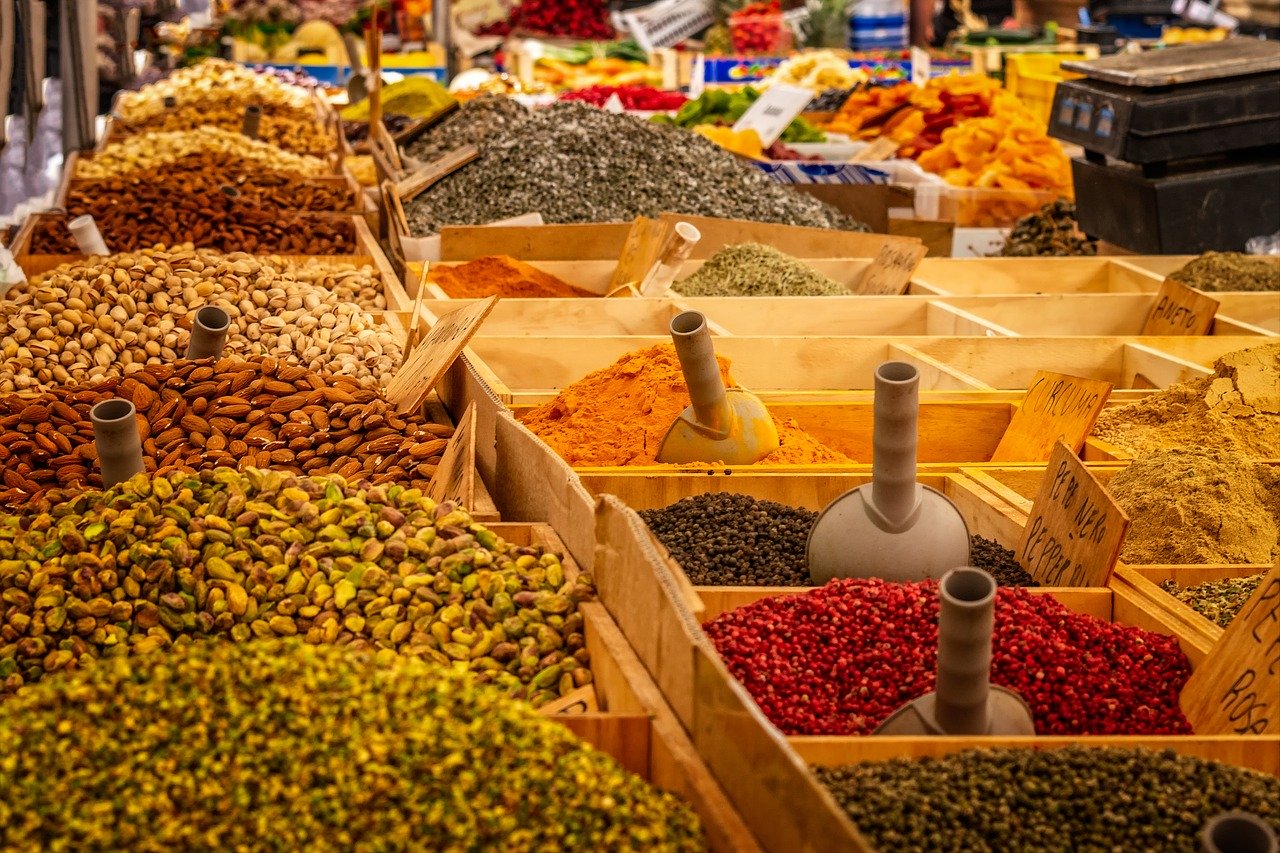
For thousands of years, humans around the world have used herbs and spices for their healing effects and for flavoring the food. Spices and herbs are perfect in soups, stews, cooked dishes, sauces, and even desserts. Spices are a good source of magnesium and other minerals. Generally speaking, the stronger the spice, the more magnesium it contains.
In addition to the herbs providing that little extra in the food, they are part of a healthy diet because they contain plenty of healing substances. Researchers at the US Department of Agriculture recently conducted a study on common herbs and spices. The study shows that many popular spices and herbs are a good source of natural antioxidants. In addition, it was found that the total phenolic content of the herbs was higher than berries, fruits, and vegetables, however, do not eat the same amount of spices as vegetables.
The antioxidant concentration in the plant parts is high, so even if you usually eat relatively small amounts of spices it can be a great deal for a week. The overall effect on health when using more or less spices in cooking can be powerful. It is particularly positive to replace some of the salt consumption with spices. The use of more and a wide variety of spices contributes to a better state of health.
Top things you should know about spices and seasoning
1. Protects from microbes
Spices are used as protection against bacteria and parasite infestation. For example, wasabi, a green horseradish that is often included in Japanese sushi, protects from any parasites in raw fish. In hot countries like India, it is thanks to the eating of strong curry that the stomach can withstand bacteria, which is often found in foods where you have poor cooling possibilities and poor hygiene.
2. Increases calorie burning
Many herbs and spices, such as cayenne, ginger, and mustard, increase the body’s calorie burning.
3. Medical properties
Seasoning more with certain spices can have a strengthening effect on physiological functions. They can prevent or improve the condition of the disease. For example, cinnamon in the morning carrots has a stabilizing effect on high blood sugar. Cayenne has a very favorable effect on circulation and more.
4. Seasoning
Spices make the food taste good. Of course, it is a taste thing, but our taste buds can learn to appreciate new spices and dishes. Spice makes foods with a neutral taste like rice, tofu, and noodles an amazing taste experience.
5. Salt replacement
Many who salt a lot can learn to appreciate spice combinations instead of salt. In many places, people eat too much salt and too few vegetables. Reducing salt and increasing the intake of spices and vegetables is a good investment in your own health.
6. Variation
With seasoning you can use the same basic food and get a great variety.
7. Preservative
Spices contain antioxidants and act as natural preservatives. This makes the dishes stay fresh longer. Rosemary is a good example of a spice with a very strong content of antioxidants and natural preservatives.
8. Stimulates digestion
Spices increase saliva secretion, which in turn stimulates other digestive enzymes.
9. Weather distribution
Spices in pastries counteract gas formation. Spices like cumin and anise are common in bread and pastries. They provide interesting taste experiences and reduce gas formation.
Many people are not used to using spices. Some with sensitive stomachs should be very careful with seasoning, while others may be more uninhibited. The best thing for most people is to gradually increase their seasoning dose.
Most are able to progressively progress from a very mild curry seasoning to a moderately strong seasoning within a few months by gradually increasing the strength. In the case of stomach upset or burnout, one should be careful and not overstimulate with spices.
- Parsley, onion, garlic, and chives contain sulfur and other substances that counteract bacteria and viruses.
- Fennel seeds, anise seeds, and cumin are often used in bread baking. These give good taste and counteract weather stresses.
- Cumin and dill seeds give a spicy taste to bread, soups, cabbage, and beets.
- Cinnamon, cloves, coriander, ginger, nutmeg, and cardamom all have expanding, drying, and warming properties. This reinforces the expanding aspect of sweet foods.
- Green leafy herbs such as oregano, basil, thyme, rosemary and bay leaf have an aromatic power that lightens up dark colored beans, peas and heavy sauces.
- Coriander, cumin and ginger are suitable in prayer dishes to reduce weather stress.
- Garlic and cayenne are very good in soups for colds and are very warm during a chilly autumn or winter evening.
- Turmeric, ginger and cayenne and various curry mixes are excellent for bean casseroles, lentils, cooked or lightly fried dishes, etc.
- Fresh coriander, parsley and grated ginger are excellent to have in salads.
- Cardamom, cumin, parsley, anise seeds, basil, rosemary and thyme are different types of spices that are suitable for salad dressings.
- Garlic, cayenne, fennel seeds, anise seeds, turmeric and ginger are excellent to add in smoothies and juices.
Fresh herbs are less stimulating but more nutritious than dried spices and should be used as much as possible. They are rich in vitamins, minerals, and other health-promoting substances.
There is really no difference between herbs and spices, except that spices are herbs that are more associated with cooking. The book does not present a complete list but some favorites, as well as those with interesting medical studies.
For therapeutic use of herbs, a herbal specialist or herbalist should be consulted, as well as physicians at risk of drug interactions or severe illnesses. On the other hand, using a few teaspoons of a few different spices daily is generally strengthening and health-promoting.

